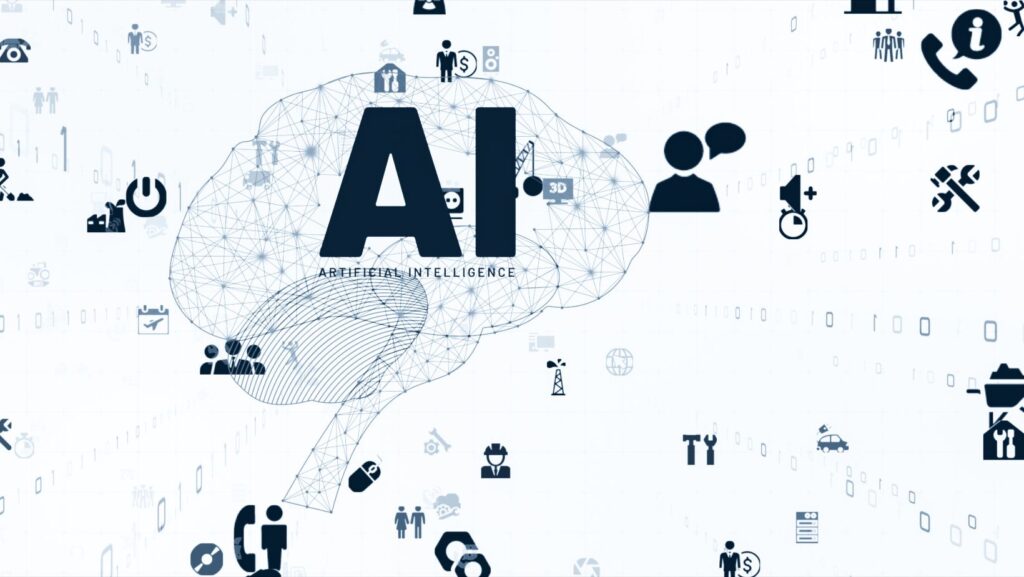Artificial intelligence, or AI, is a fascinating field that has been gaining momentum in recent years. It refers to the simulation of human intelligence in machines that are programmed to think and learn like humans. In simple terms, AI enables computers to perform tasks that typically require human intelligence, such as problem-solving, decision-making, and language understanding.
As an expert in the field of technology, I’ve come across numerous definitions of artificial intelligence, but at its core, AI is about creating smart machines that can mimic human cognitive functions. From virtual assistants like Siri and Alexa to self-driving cars and recommendation systems, AI is all around us, shaping the way we live and work. In this article, I’ll break down the concept of artificial intelligence in simple words, making it easy for anyone to understand its significance in today’s digital age.
What is Artificial Intelligence in Simple Words
Artificial Intelligence, or AI, is a fascinating field that involves creating intelligent machines capable of mimicking human cognitive functions. Simply put, AI enables computers to think, learn, and problem-solve like humans do.
AI technology empowers machines to perform tasks that typically require human intelligence. This includes activities such as decision-making, recognizing speech patterns, and even understanding language.

Definition of Artificial Intelligence
Artificial Intelligence (AI) is the simulation of human intelligence processes by machines, especially computer systems. It refers to the capability of machines to imitate intelligent human behavior such as learning, reasoning, problem-solving, perception, and decision-making.
AI involves developing algorithms that allow machines to perform tasks that typically require human intelligence. These tasks include speech recognition, visual perception, language translation, and decision-making based on data analysis.
Importance of Artificial Intelligence
Artificial intelligence (AI) plays a pivotal role in transforming various industries and sectors across the globe. Here are some key reasons why AI is essential:
- Enhanced Efficiency: AI automates mundane tasks, boosting productivity and allowing organizations to focus on high-value activities.
- Data Analysis: AI processes vast amounts of data swiftly and accurately, providing valuable insights for informed decision-making.
- Personalization: AI enables personalized user experiences by analyzing user data and preferences.
- Predictive Capabilities: AI algorithms can forecast trends and behaviors, aiding in anticipating future outcomes.
- Cost Savings: Implementing AI can lead to cost efficiencies by reducing errors, predicting maintenance needs, and optimizing operations.
- Improved Healthcare: AI enhances diagnostic accuracy, treatment plans, and patient care in the medical field.
These aspects highlight the significance of AI in driving innovation, improving processes, and delivering tangible benefits across various sectors.

Applications of Artificial Intelligence
Artificial Intelligence (AI) has a wide range of applications across various industries. Here are some key areas where AI is making a significant impact:
- Healthcare: In healthcare, AI is used for medical imaging analysis, drug discovery, personalized treatment plans, virtual health assistants, and predictive analytics for patient outcomes.
- Finance: AI plays a crucial role in fraud detection, algorithmic trading, risk management, customer service chatbots, and personalized financial recommendations.
- Retail: Retailers leverage AI for personalized shopping experiences, demand forecasting, inventory management, recommendation engines, and chatbots for customer service.
- Marketing: AI is used in marketing for customer segmentation, targeted advertising, content optimization, personalized recommendations, and predictive analytics for marketing campaigns.
- Transportation: In transportation, AI is utilized for route optimization, autonomous vehicles, traffic management, predictive maintenance of vehicles, and demand forecasting for mobility services.
- Manufacturing: Manufacturers use AI for predictive maintenance of equipment, quality control in production processes, supply chain optimization, autonomous robots in factories, and energy management.
- Education: AI in education is employed for personalized learning experiences, intelligent tutoring systems, educational content recommendations, student progress tracking, and automating administrative tasks.
By integrating AI technologies, industries can streamline operations, enhance productivity, drive innovation, and improve overall customer experiences.
Conclusion
Artificial Intelligence (AI) is a transformative technology that revolutionizes industries like healthcare, finance, retail, marketing, transportation, manufacturing, and education. Its applications range from medical imaging analysis to fraud detection, personalized shopping experiences to predictive maintenance.
AI enhances operations, boosts productivity, fosters innovation, and improves customer experiences across sectors. Embracing AI technologies is essential for staying competitive in today’s rapidly evolving digital landscape.
